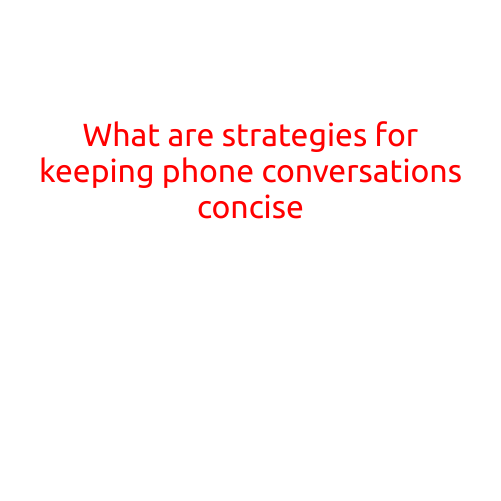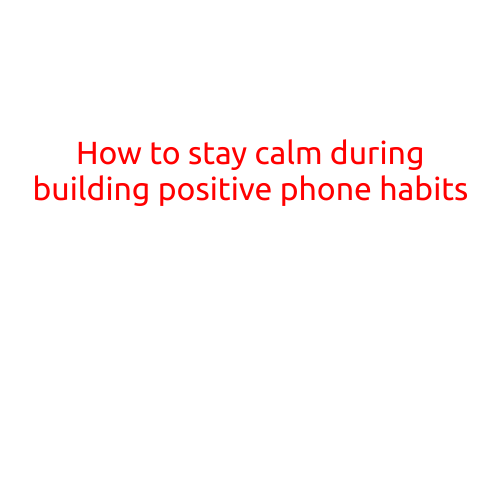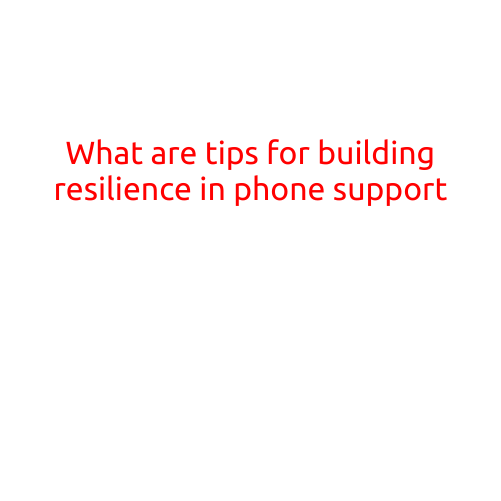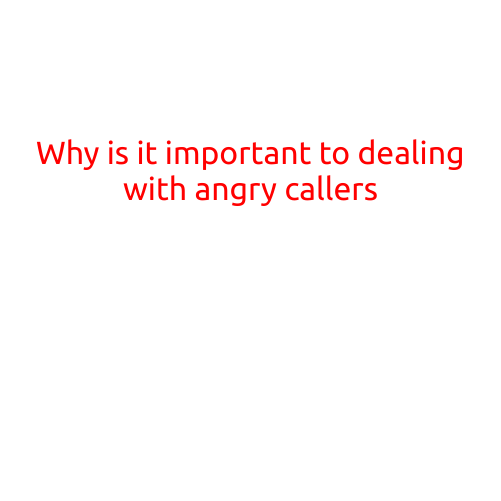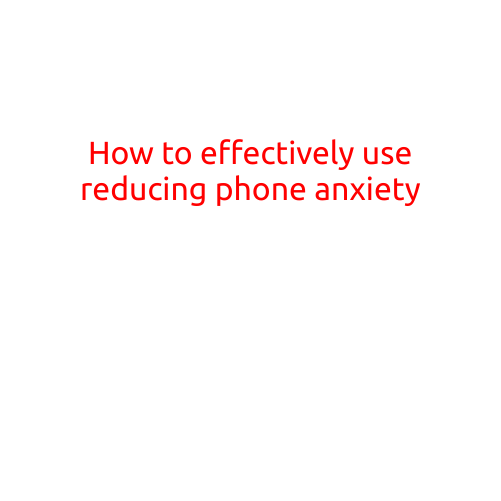
How to Effectively Use Reducing Phone Anxiety
In today’s digital age, it’s estimated that the average person checks their phone over 150 times per day. While our phones have made it easier to stay connected with others and access important information, they can also be a significant source of anxiety. Phone anxiety, also known as nomophobia, is the fear or anxiety of being without your phone, and it’s a common experience for many people.
If you find yourself feeling anxious when you can’t access your phone or are worried about running out of battery, you’re not alone. In this article, we’ll explore the causes of phone anxiety and provide tips on how to reduce your phone anxiety and live a healthier relationship with your device.
What Causes Phone Anxiety?
There are several reasons why phone anxiety may be affecting your daily life. Some common causes include:
- Fear of missing out (FOMO): The constant need to stay connected and avoid missing important updates, posts, or messages can lead to anxiety.
- Email and notification overload: The constant stream of notifications can be overwhelming and lead to feelings of anxiety.
- Social media pressures: The need to present a perfect online image and keep up with social media can create unrealistic expectations and anxiety.
- Fear of loss or theft: The fear of losing your phone or having it stolen can cause significant anxiety.
- Addiction: Spending excessive time on your phone can lead to dependency and withdrawal symptoms when you can’t access it.
How to Reduce Phone Anxiety
Now that we’ve explored the causes of phone anxiety, let’s dive into some tips on how to reduce your phone anxiety and live a healthier relationship with your device:
- Set boundaries: Establish specific times of the day when you’ll check your phone, and stick to those times. This can help reduce the constant need for updates and notifications.
- Turn off notifications: Disable notifications for non-essential apps or limits them to specific times of the day. This can help reduce the constant stream of alerts and annoyances.
- Practice mindfulness: Take a few deep breaths and focus on the present moment when you feel anxious about your phone. This can help you stay grounded and reduce anxiety.
- Use phone-limiting apps: Apps like Freedom, SelfControl, or Moment can help you track and limit your phone use, reducing the likelihood of addiction and anxiety.
- Stay organized: Keep a planner or use a digital calendar to stay organized and reduce the need for constant checking of your phone.
- Take breaks: Regularly take breaks from your phone to relax, read a book, or engage in a hobby. This can help reduce phone anxiety and increase overall well-being.
- Seek support: Share your phone anxiety with a friend or family member and ask for their support in reducing your phone use.
- Practice relaxation techniques: Regularly practice relaxation techniques like meditation, yoga, or deep breathing to reduce overall anxiety and stress.
Conclusion
Phone anxiety is a common experience for many people, but it’s not a sign of weakness. By understanding the causes of phone anxiety and implementing the tips outlined in this article, you can reduce your phone anxiety and live a healthier relationship with your device. Remember, it’s essential to set boundaries, practice mindfulness, and stay organized to reduce phone anxiety and increase overall well-being.
